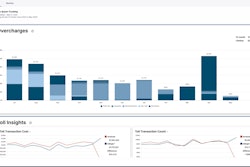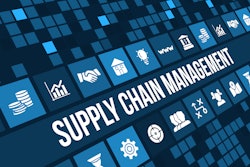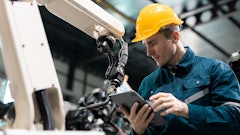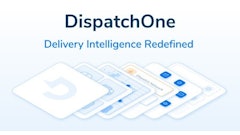
Nearly 61% of organizations anticipate fully autonomous Agentic AI, capable of acting independently to achieve specific goals within the next five years, however, only 37% have deeply integrated AI and machine learning in their TMS today, according to research released by Manhattan Associates Inc. in collaboration with Vanson Bourne.
“Transportation is the backbone of supply chains, essential to ensuring goods are delivered on time to meet customer expectations,” says Bryant Smith, director, transportation management systems (TMS) at Manhattan Associates. “Yet, managing transportation is becoming increasingly complex, pressured by demands on shorter fulfilment times, capacity and cost efficiencies, tighter sustainability regulations and the growing necessity for access to end-to-end visibility across all operations.”
Key takeaways:
· 60% of organizations say that enhancing visibility leads to greater customer satisfaction, through more accurate and timely updates, while 50% cite reductions in transportation costs as a key benefit increased operational visibility.
· While many might view five years in the AI space like an eon, the gap between future expectations and current usage is noteworthy given adoption is rarely straightforward: although almost half (48%) said that they already feel very prepared for autonomous agents by 2030, practically every organization (99%) reported facing, or expecting to face, hurdles, with concerns including skill shortages (49%), integration difficulties (44%) and data quality and availability issues (44%).
· 69% of organizations say sustainability is either a global mandate or an area of significant pressure, with 62% already implementing Corporate Sustainability Reporting Directive reporting.
- 48% of organizations spend more than 10% of their transportation logistics budget on errors and disruptions.
- 78% view transportation management as a strategic imperative for success and this figure rises to 86% by 2030.
- 61% are anticipating fully autonomous Agentic AI, capable of acting independently to achieve specific goals, or minimal human oversight within the next five years for TMS.
- 50% report challenges in proactively rerouting shipments, while 49% struggle with optimizing dock and warehouse labor scheduling.
- 82% express strong confidence that advances in planning, forecasting and modelling will reduce freight costs by at least 5% within the next five years.
- Organizations are still struggling to operationalize sustainability: only 34% say they’ve factored sustainability into operational planning, 30% into procurement decisions and just 31% offer carbon-friendly fuel solutions.
- While a majority have integrated their TMS with sales and operations planning systems (60%) and are utilizing predictive analytics or AI (56%), far fewer are capitalizing on key enablers such as historical trend analysis (38%), automated booking and tendering (36%), or real-time demand sensing (35%).




















